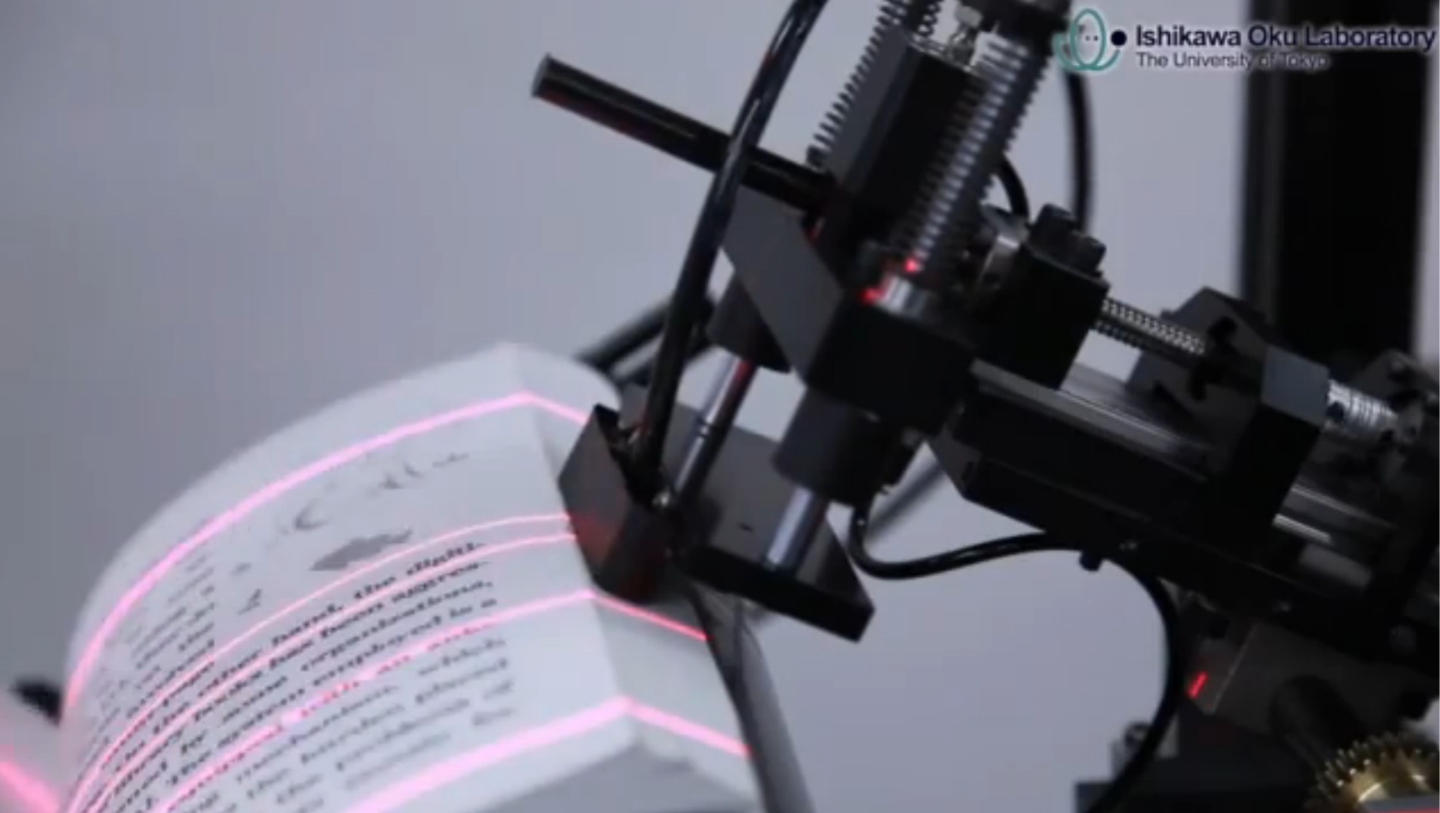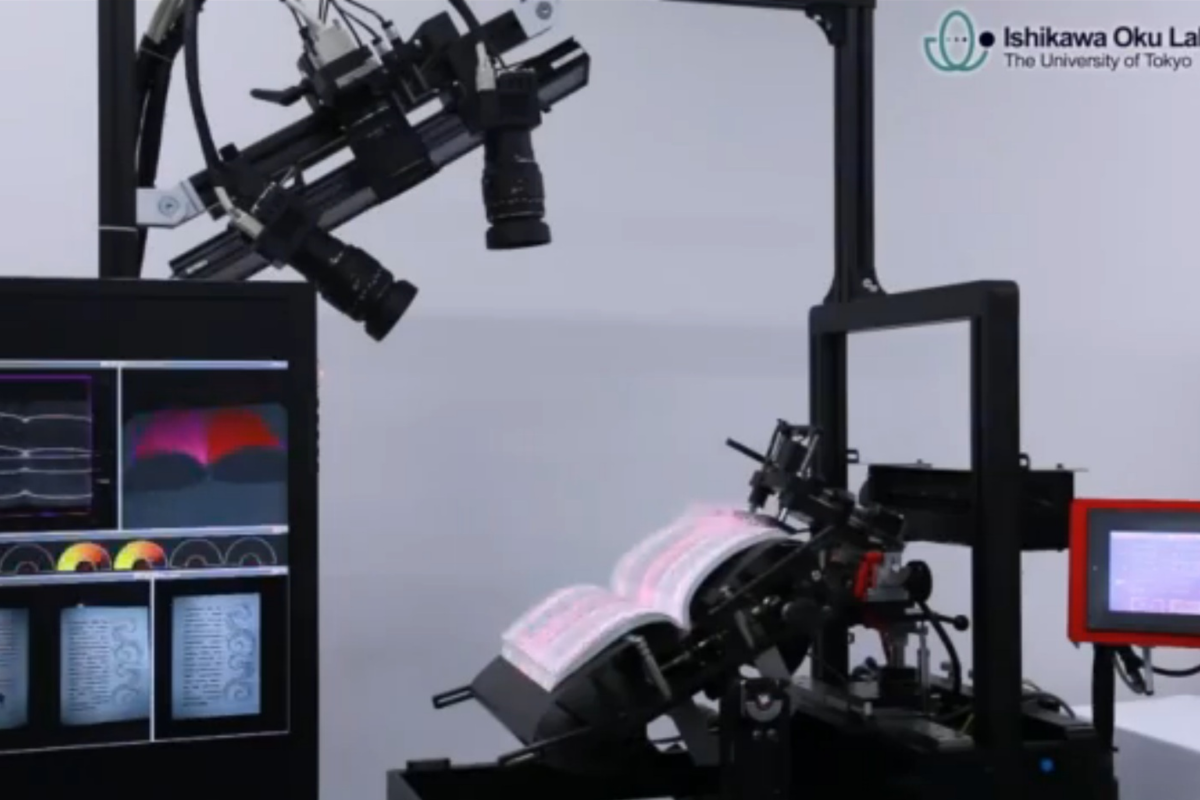Online book collections are becoming larger and more important each day. As more libraries are digitized, people are now able to read books on their tablets that once would have required traveling thousands of miles to even see. Scanning hundreds of thousands of books quickly without damaging them remains a challenge however, and it's a challenge which the BFS-Auto robot is well and truly up for.
Developed at the University of Tokyo’s Ishikawa Oku Laboratory, the BFS-Auto can digitally scan books at a rate of 250 pages per minute. At that rate, it could make a dent in a good sized library in one day.
Usually creating a digital version of a book is a choice between slow manual scanning and high-speed scanning, which requires cutting books up before running them through a scanner. The BFS-Auto can do the job with the book in its original format at high-speed.

The clever thing about the BFS-Auto is that it can blur through an intact book at speed while accurately scanning. It does this by holding the book opening and flipping through it without pausing, like an extremely bored bookshop browser. As the pages flip, a pair of high-definition cameras scan the pages while two kinds of light provide information about the page’s 3D topography. The latter allows the robot to map the page’s 3D deformation and using a real-time algorithm it restores the image to a flat view without curling as well as guarding against skipped pages.
The BFS-Auto is due to hit the market in 2013.
The video below explains how the BFS-Auto works.
Link: Ishikawa Oku Laboratory via Dvice







